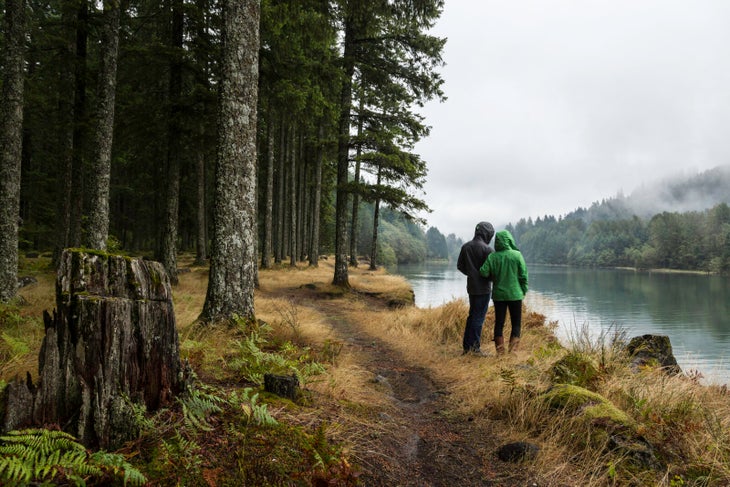Products You May Like
We’re moving in different directions. I think we should see other people. I don’t want to hurt you. I’m not ready for this level of commitment. This isn’t working.
We’ve all suffered through these euphemisms before (or have doled them out ourselves), usually during a heartbreaking relational split. We utter them to ease the blow as we tell a partner or love interest it’s time to call it quits. But what happens when it’s not a significant other with whom you’re breaking up, but your hiking buddy?
You’ve probably been there: One day, you wake up, lace up your boots, don your pack, and realize you’re growing apart from your hiking partners. It could be due to something as simple as liking different kinds of trails or as important as preparedness. But whatever the reason, if you have any desire to continue your friendship after your breakup, tread lightly through the turbid waters of redefining the relationship so you don’t damage it irreparably.

I recently had to do so myself with a couple I’ve hiked and backpacked with many times over the years. I enjoy their company, both on and off the trail, immensely. They’re lively, funny, love to explore, and one of them hikes at the same quick pace as I do.
But on our last backpacking trip together, as soon as I arrived at camp, an hour or so behind my friends who had started earlier in the day, they informed me that they would likely only stay the night, then head back down first thing in the morning instead of spending the next two days backpacking as originally planned. It was colder than they had anticipated, they had forgotten matches (good thing I brought plenty), and they had somehow managed to pack a tent with a bent tent pole.
The same tent that had broken three years earlier, the last time we backpacked together. When they had also hiked out after the first night of a three-day trip.
It was then and there, among the pines and pitched tents, that I knew it wasn’t working and we had to break up. Because, though I would never discourage someone from evacuating the backcountry when they didn’t feel safe or prepared, we were clearly not compatible.
Not because I don’t love them as friends, but because we have very different expectations for outdoor adventure. I revel in roughing it, in getting my boots dirty, in finding solutions to problems in the backcountry (I once forgot tent poles and pitched my tent with a tripod). I am thrilled by the prospect of going far and fast, of pushing my body to the limit. And if I’m being honest, I may be just a bit of a masochist, secretly pleased to suffer through cold nights, wind storms, and 19-mile slogs.
It was clear, however, that these friends did not warmly welcome such experiences. We just want different things, and that’s fine, but if we’re not right for each other, that makes for a stressful experience in the backcountry.
But breakups are tough. Especially when you want to stay friends. So if you’re proposing moving in different directions, here are some tips to ensure everyone comes out of the conversation without their feelings hurt.
- Be kind. Just like breaking up with a significant other, you don’t want to purposefully cause any mental or emotional anguish. So consider the other person’s feelings; be gentle, but explain why.
- Take it slow. If you’re more the type to avoid confrontation and don’t mind a slow, steady split, move in that direction one hike at a time. As in, don’t invite them on your next trip. Or the one after that. If they’re the one inviting you, politely decline. They’ll likely stop asking after a few dismissals.
- Set expectations. If you’re worried your friendship can’t handle a breakup, or you enjoy your friend’s company on the trail but you have different goals, adjust your expectations or make yours a bit clearer. Share what you’d like to accomplish and what it will take to get there.
- Choose trails wisely. If your goal is to move far and fast and your hiking buddy tends to slow you down, save big hikes for a solo trip or an adventure with others and stick to less aggressive, low-stakes itineraries with your trail bestie.
- Suggest other activities. Even f hiking is off the table, you can still be friends. Simply suggest other activities like dinner, coffee—hell, even whitewater rafting. In my case, I’ll be skipping backpacking trips with this duo. I’ll still be down to accompany them on dayhikes, brunches, group runs, because I enjoy their company. I just don’t enjoy how they backpack.
Whatever you do, remember that finding joy outdoors is just as important for them as it is for you. So if it’s over, be kind, be considerate, then get out there and walk it off. There are plenty of fish in the sea (and on the trail).
